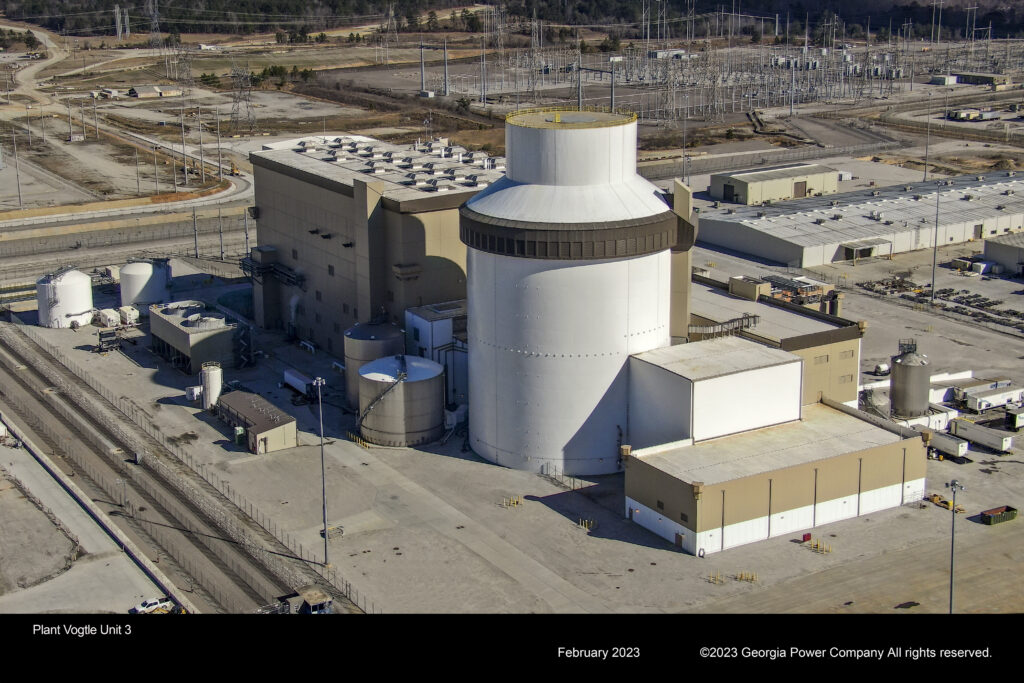
ATLANTA – Georgia Power has agreed to spare the utility’s customers $2.6 billion of the $10.2 billion it’s costing the company to build two additional nuclear reactors at Plant Vogtle.
Under an agreement between Georgia Power and the state Public Service Commission’s (PSC) Public Interest Advocacy Staff announced Wednesday, the company would pass on nearly $7.6 billion of the project’s cost to customers, with shareholders picking up the rest.
If the PSC approves the agreement, the average residential customer’s monthly bill would increase by $8.95.
The first of the new reactors at the plant south of Augusta, Unit 3, went into commercial operation late last month after years of delays and billions of dollars in cost overruns. Fuel loading has begun at Unit 4, which is expected to go into service late this year or early next year.
Several environmental advocacy groups that have opposed the project worked with Georgia Power and the PSC staff on the proposed agreement. As part of the deal, the utility has agreed to expand its energy efficiency and senior discount programs.
“We reached key settlement terms to mitigate bill hikes for Georgians with limited incomes and expand efficiency programs to help reduce energy usage and lower bills,” said Bob Sherrier, a staff attorney with the Southern Environmental Law Center.
“While project delays and overruns do mean Georgians will be paying for this project for decades, Georgia Power agreed to significantly lower the construction costs they were expected to pass on to customers.”
PSC Chairman Jason Shaw said the agreement is the products of “countless hours of analysis,” probably with more evidence presented than for any other project in the commission’s history.
“The culmination of construction on this historic project marks the expansion of clean energy production for another 60 to 80 years here in Georgia,” Shaw said.
Under an agreement the PSC and Georgia Power reached in 2018, any Vogtle-related rate increase the commission approves would not take effect until a month after Unit 4 goes into commercial operation.